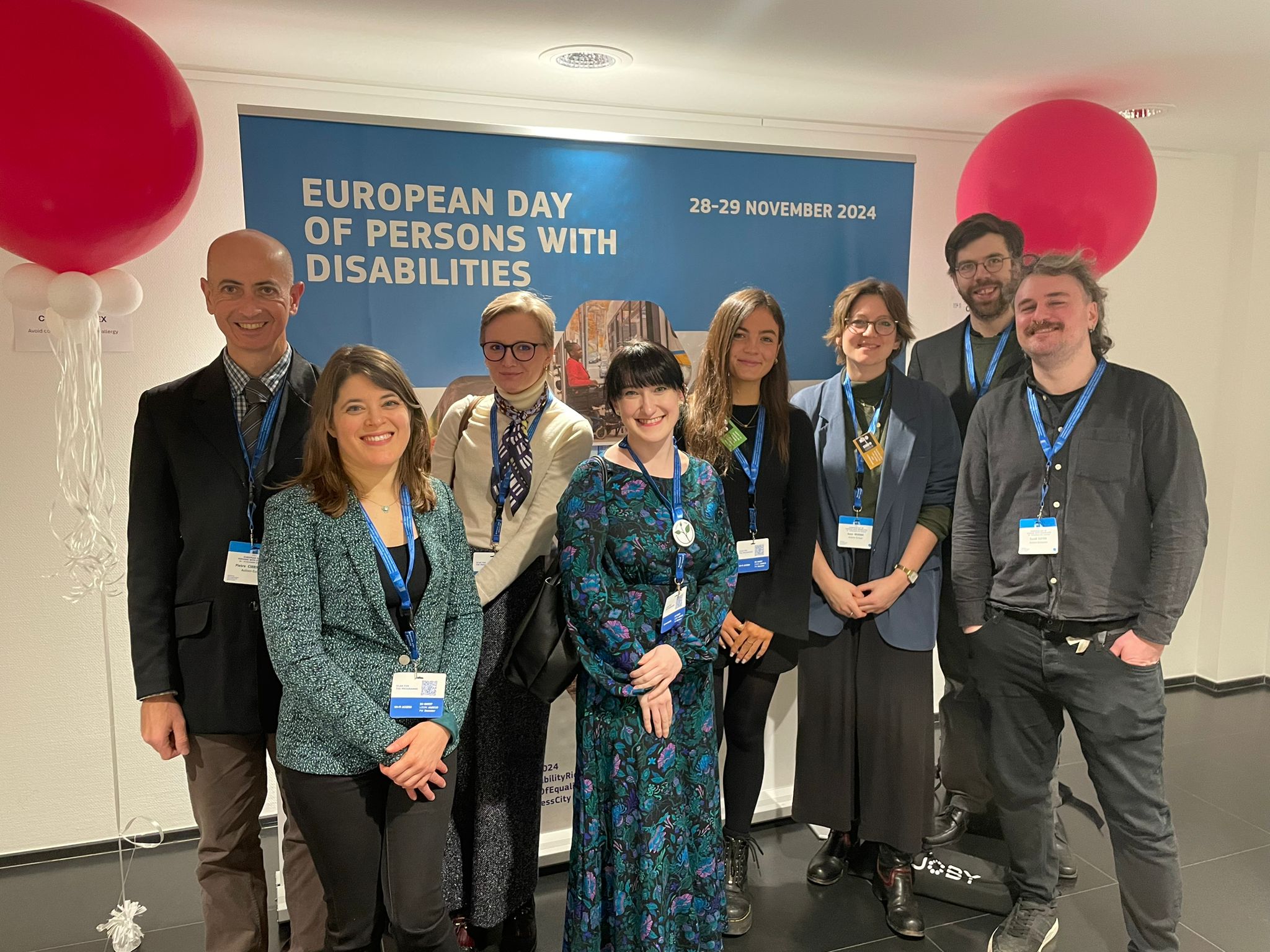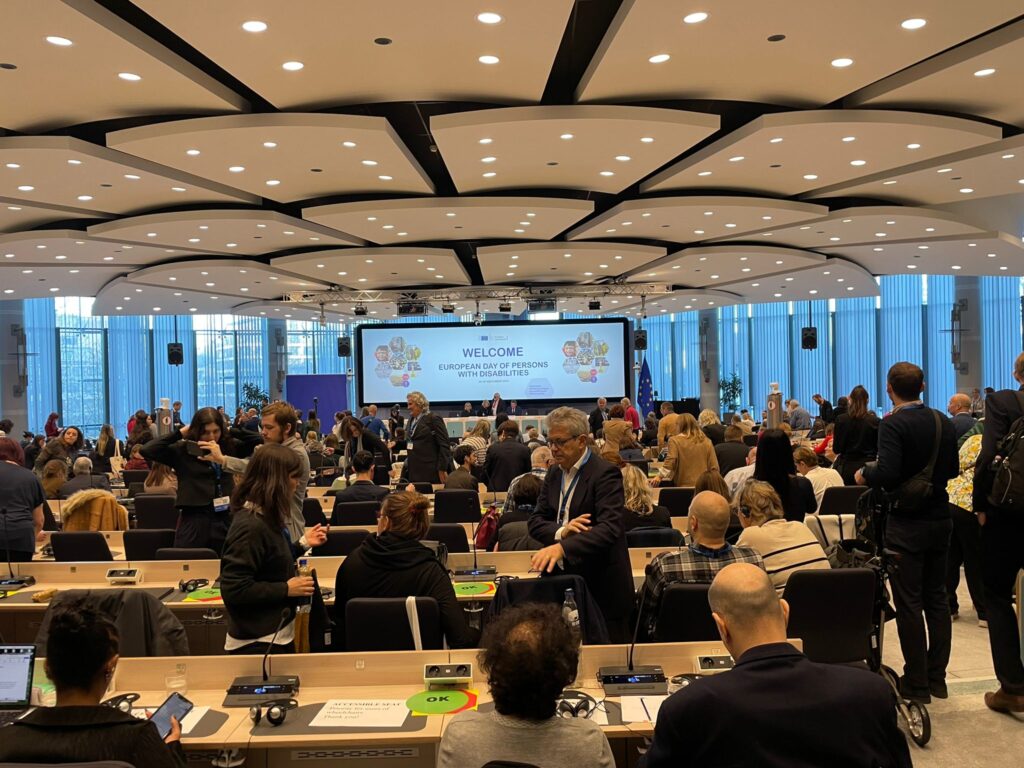
The European Day of Persons with Disabilities (EDPD) conference, a flagship event organised annually by the European Commission in partnership with the European Disability Forum (EDF), convened on November 28-29, 2024, in Brussels. This year’s gathering marked a significant milestone, aligning with the formation of the new European Parliament and the launch of the second phase of the Strategy for the Rights of Persons with Disabilities 2021–2030. Over 400 policymakers, experts, and advocates attended to address pressing issues related to disability rights, accessibility, and inclusion across the European Union.
For Autism-Europe (AE), the conference presented a vital opportunity to advocate for the inclusion of autistic individuals in policy development and research initiatives. Pietro, member of the Council of Administration and one of AE’s delegates at the event, raised a critical issue during the panel discussions: the need for a meaningful involvement of autistic people and their representative organisations to shape the future EU’s common approach to autism announced by the European Commission in its recent political roadmap, and to identify research priorities. Despite some mention of autism in EU research agendas, Pietro expressed concern about the exclusion of autistic voices from these processes, stressing that participatory research must be implemented from the outset to ensure meaningful outcomes.
Addressing Challenges and Opportunities
The conference celebrated achievements under the current disability strategy, including the establishment of the European Disability Platform and progress in embedding disability inclusion into EU-funded programs. However, participants also reflected on persistent challenges. Accessibility remains an area of concern, with inconsistent implementation of the European Accessibility Act and limited adoption of inclusive technology standards. These gaps hinder the full societal participation of persons with disabilities, including autistic people, who face unique barriers in communication, education, and employment.
Intersectionality was another key theme, with several speakers highlighting how women, children, and minorities with disabilities often experience compounded discrimination. For autistic people, these intersecting identities amplify the challenges they face in accessing services and having their rights recognised.

Recommendations for the Future
Key recommendations emerging from the conference aligned closely with AE’s advocacy goals. These included calls for increased funding for inclusive technologies and services, the adoption of legally binding measures to enforce accessibility standards, and the mainstreaming of disability rights in EU financial and legislative frameworks. Pietro’s intervention underscored the need to embed participatory methods in research, particularly for autism, to bridge the gap between policy intentions and the practical outcomes.
Moving Forward
The EDPD conference served as a vital platform for raising the concerns of persons with disabilities, including the autistic community, and advocating for meaningful change. For Autism-Europe, the event reinforced the urgency of ensuring that autistic voices are central to shaping research and policy. AE remains committed to working with the European Commission, Member States, and civil society to create a truly inclusive Europe where every autistic individual can thrive.
As the EU embarks on the next phase of its disability strategy, AE will continue to champion the rights of autistic individuals, ensuring that their voices are not only heard but are instrumental in shaping the future of disability inclusion.
Watch the recordings here.